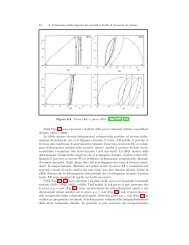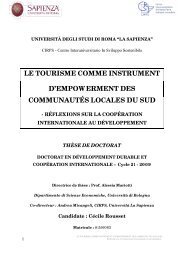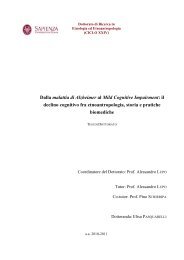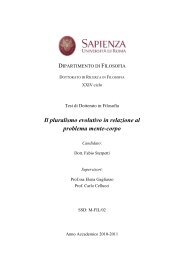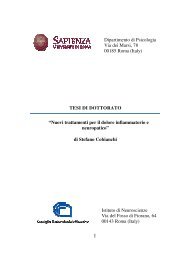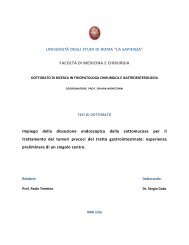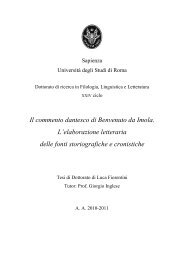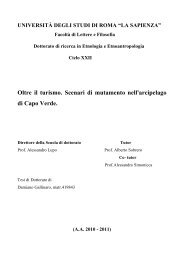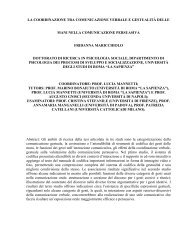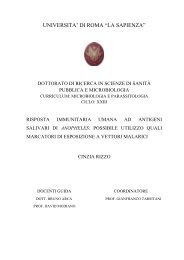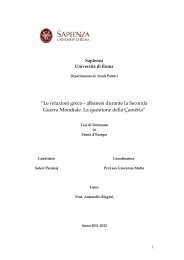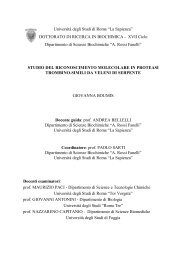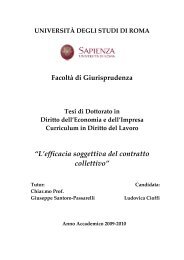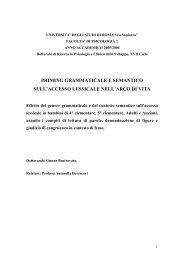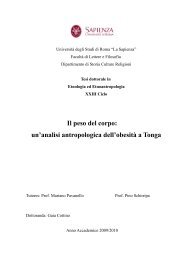You also want an ePaper? Increase the reach of your titles
YUMPU automatically turns print PDFs into web optimized ePapers that Google loves.
114<br />
Capitolo terzo<br />
ambiguo. Talvolta pare giustificarla in quanto “independent act” 9 , altre<br />
volte la sente come complice del regime totalitaristico hitleriano. Bowen<br />
traccia anche dei parallelismi tra Germania e Irlanda e riscontra<br />
un’influenza “culturale” della prima sulla seconda 10 . L’Irlanda, a suo<br />
avviso, si sottrae al compito storico di combattere il Nazismo: lo si evin-<br />
ce non solo dagli scritti autobiografici, ma anche nelle short stories (si ve-<br />
da, ad esempio, “Sunday Afternoon” 11 , in cui la famiglia anglo-irlandese<br />
protagonista del racconto è come “secluded behind glass” 12 ). Da qui la<br />
collaborazione con l’intelligence inglese.<br />
La narrativa di Elizabeth Bowen esprime “a set of deeply encoded<br />
anxieties about the value of tradition, the disruptions of war and the<br />
paralysis of gender” 13 . Coerentemente con il suo ruolo naturale e/o adot-<br />
tato di outsider, la sua poetica di scrittrice del tempo di guerra si colloca<br />
9 ELIZABETH BOWEN, “Eire”, in MT, pp. 30-35; p. 31. L’Irlanda era stata infatti costretta<br />
a combattere a fianco del Regno Unito durante la prima guerra mondiale.<br />
10 Ivi, p. 33: “Any German influence in Eire has, very largely, a cultural source.<br />
The Nazi encouragement of folk culture runs parallel to activities in Eire that date<br />
from the start of the Gaelic League, and the Nazi revivals of racial history and myth,<br />
the organizations of Heimkunst and song and dance are sometimes held up as a<br />
model”.<br />
11 ELIZABETH BOWEN, “Sunday Afternoon”, in IDEM, The Collected Stories of<br />
Elizabeth Bowen, introduzione di Angus Wilson, Harmondsworth: Penguin, 1983, pp.<br />
616-622. In seguito CS.<br />
12 Ivi, p. 616.<br />
13 GILL PLAIN, Women’s Fiction of the Second World War. Gender, Power and<br />
Resistance, Edinburgh: Edinburgh University Press, 1996, p. 166.



